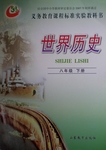题目内容
Happiness is very importance in my daily life. This is why it makes me feel cheerful, and full joy.
If you felt happy, you will make others feel good. When I don’t feel cheerful, I try to remember good moments to making me feel better. When I miss some friends or family member I also try to remember those happy moments we were spent together. In my opinion, the best way to help people be happy in life are to make them laugh every time we are feeling down. Also by give them love you can make them feel sure about themselves.
try to remember good moments to making me feel better. When I miss some friends or family member I also try to remember those happy moments we were spent together. In my opinion, the best way to help people be happy in life are to make them laugh every time we are feeling down. Also by give them love you can make them feel sure about themselves.
练习册系列答案
 探究与巩固河南科学技术出版社系列答案
探究与巩固河南科学技术出版社系列答案
相关题目


 俗) clearly. Maybe I didn’t need to send any gifts. I watched others to see what they did, so next time I can understand.
俗) clearly. Maybe I didn’t need to send any gifts. I watched others to see what they did, so next time I can understand. for the teacher, so I owed(欠) a gift to the teacher. Anyway, I want to say, ”Thank you, Mr. Peters, and I’m sorry.”
for the teacher, so I owed(欠) a gift to the teacher. Anyway, I want to say, ”Thank you, Mr. Peters, and I’m sorry.” population in the US
population in the US